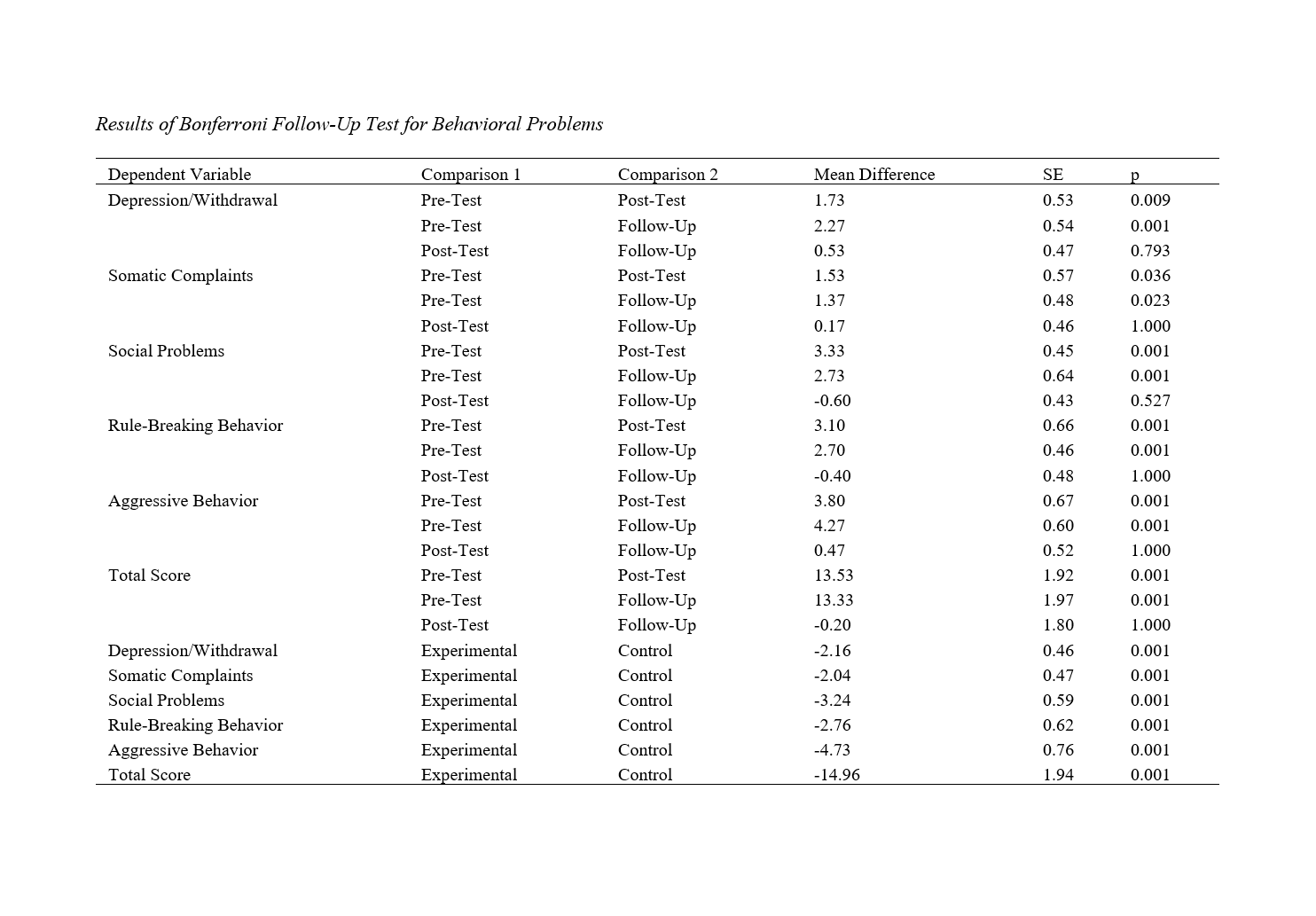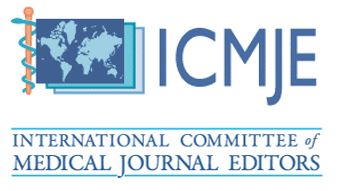Effectiveness of Unified Transdiagnostic Treatment on Behavioral Problems in Children with Internalizing Behavioral Problems
Keywords:
Unified transdiagnostic treatment, behavioral problems, internalizing behavioral problemsAbstract
This study aimed to investigate the effectiveness of unified transdiagnostic treatment on behavioral problems in children with internalizing behavioral problems. This quasi-experimental study utilized a pre-test, post-test design with a control group and a two-month follow-up. The statistical population included 8- to 10-year-old children with internalizing behavioral problems in Najafabad during the first half of 2022. Thirty children were selected based on inclusion criteria using convenience sampling and were randomly assigned to two groups of 15 (experimental and control). The experimental group received the unified transdiagnostic treatment (child version) for 15 weekly sessions of 120 minutes each, while the control group received no intervention. The Child Behavior Checklist (Achenbach & Rescorla, 2001) was used as the research instrument. The obtained data were analyzed using repeated measures analysis of variance. The results showed that the unified transdiagnostic treatment had a significant impact on behavioral problems and their components, with the effects of the intervention being sustained over time. Based on the findings, it can be concluded that this therapeutic intervention can reduce behavioral problems in children with internalizing behavioral problems.
Downloads

Downloads
Additional Files
Published
License
Copyright (c) 2024 Maryam Sadat Hosseini Kakolaki (Author); Simindokht Rezakhani (Corresponding Author); Panteha Jahangir (Author)

This work is licensed under a Creative Commons Attribution-NonCommercial 4.0 International License.

























